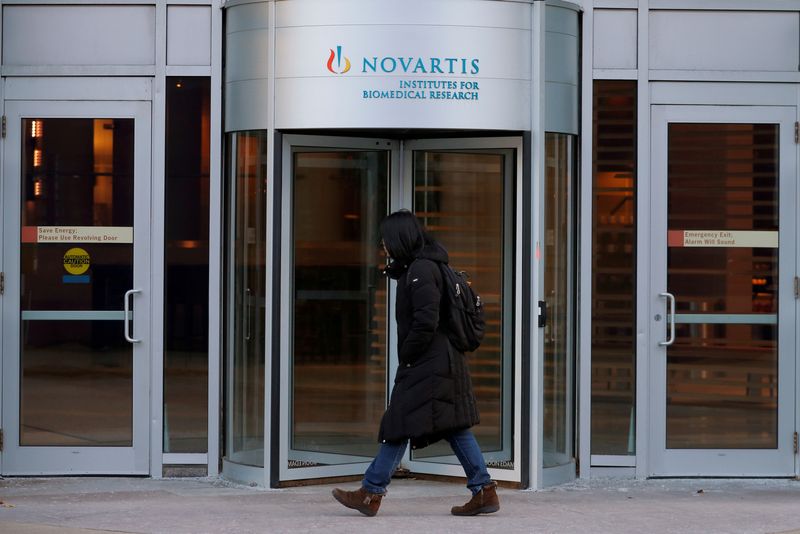US Supreme Court rebuffs Novartis bid to revive MS drug Gilenya patent
2023.04.17 10:26

© Reuters. FILE PHOTO: A pedestrian passes by Novartis’ Institutes for Biomedical Research in Cambridge, Massachusetts, U.S., January 2, 2020. REUTERS/Brian Snyder/File Photo
By Blake Brittain
WASHINGTON (Reuters) -The U.S. Supreme Court on Monday declined to hear Novartis Pharmaceuticals Corp’s bid to revive a key patent on its blockbuster multiple sclerosis drug Gilenya that was invalidated amid a legal dispute with China’s HEC Pharm Co Ltd.
The justices turned away an appeal by Novartis of a lower court’s decision to cancel the patent, a ruling that paved the way for some generic versions of Gilenya.
Novartis sold $1.1 billion worth of Gilenya in the U.S. last year, a 19% drop from 2021 that was caused in part by generic competition, according to a company report.
The U.S. Food and Drug Administration in 2010 approved Gilenya to treat relapsing forms of multiple sclerosis, a chronic disease that affects the central nervous system.
Novartis sued HEC and more than a dozen other generic drugmakers for patent infringement in Delaware federal court after they applied for FDA approval of Gilenya generics. Novartis settled with some of the drugmakers, allowing for some Gilenya generics before a key patent’s 2027 expiration.
The U.S. Court of Appeals for the Federal Circuit determined last year that the patent was invalid, in a 2-1 reversal of its own previous split decision to uphold the patent.
The Supreme Court in October rejected a Novartis emergency bid to pause the decision. Novartis argued that the ruling would greenlight at least a dozen generics and harm it in ways that could be “impossible to calculate at an after-the-fact damages trial.”
Novartis later told the Supreme Court that the patent was valid and that the Federal Circuit’s initial decision should have been reviewed by the full appeals court, not another three-judge panel with two of the same judges.
HEC responded that the Federal Circuit “followed its own rules,” and that “no Federal Circuit judge – including the dissenter – suggested any procedural concern” with the decision.








